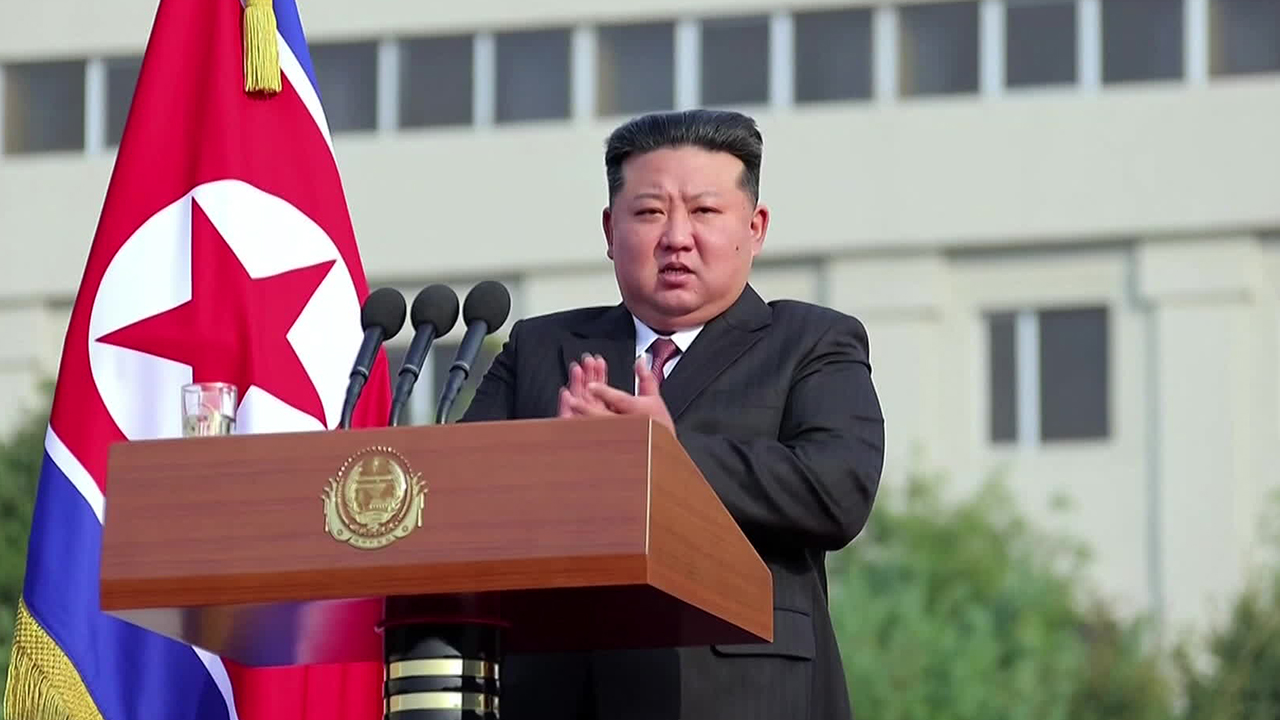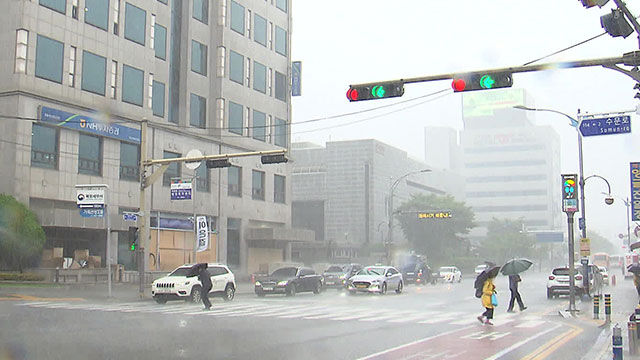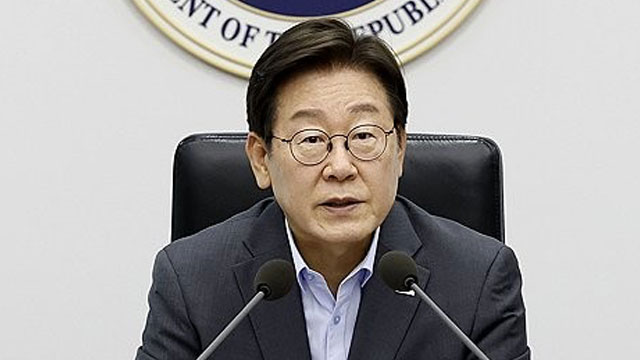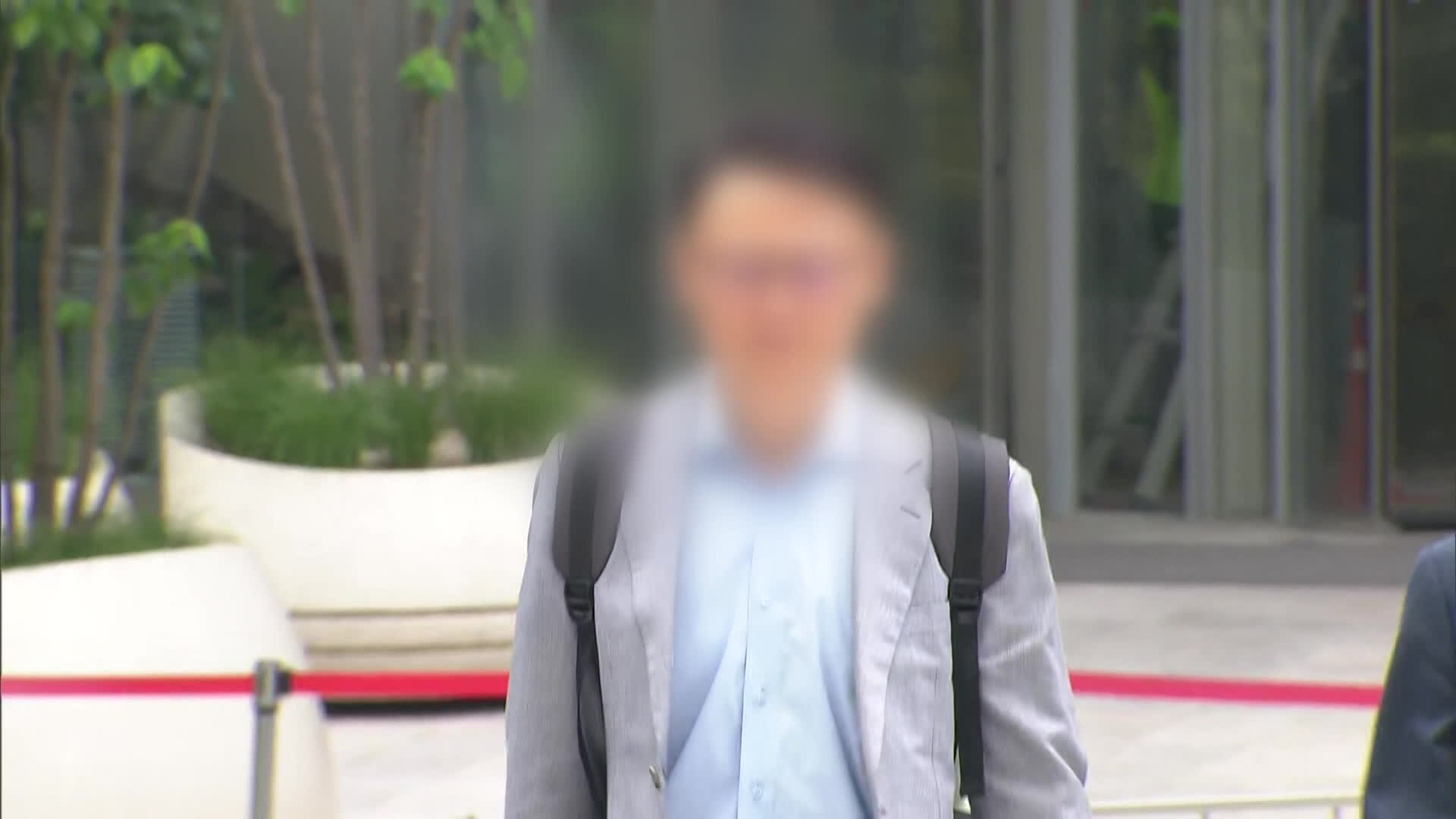N. Korea declares 'fortification' instead of constitutional amendment against S. Korea
입력 2024.10.10 (10:04)
읽어주기 기능은 크롬기반의
브라우저에서만 사용하실 수 있습니다.
[Anchor]
It was anticipated that the DPRK would clarify that the two Koreas are separate nations and initiate constitutional amendments to redefine the border at the North's Supreme People's Assembly but this did not happen.
Instead, they announced that they would completely block the southern border using the military, leading to analyses that the DPRK's constitutional amendment process has entered a phase of slowing down.
Go Eun-hee reports.
[Report]
On the day the DPRK convened the Supreme People's Assembly, Chairman Kim Jong-un visited the National Defense University instead of the assembly and reaffirmed the 'two-state theory' regarding the North and South.
[Kim Jong-un's Speech/Announcer's Voice: "We have no intention whatsoever to attack the Republic of Korea. Being conscious of them just gives me the chills, and I do not even want to face those people."]
In fact, Chairman Kim did not attend this Supreme People's Assembly, where it was expected that the 'two-state theory' would be explicitly stated in the constitution.
Initially, it was predicted that the DPRK would amend the constitution at the Supreme People's Assembly to designate South Korea as the 'primary hostile country' and establish a new border.
However, such measures were not mentioned in this meeting.
While it is possible that the constitution was amended but not announced, the absence of Chairman Kim from the meeting and the importance of the content suggest that it is more likely that no amendments were made.
If a new border were to be constitutionalized, it could lead to concerns about conflict between the North and South, leading to analyses that this may have been left for future negotiations, considering factors such as the results of the upcoming U.S. presidential election.
The DPRK's announcement of military-led severance of land routes between the North and South and fortification of the southern border area can also be interpreted as a step towards gradually severing ties instead of immediately amending the constitution.
[Cheong Seong-chang/Director of the Korea Strategy Center at the Sejong Institute: "Instead of reflecting what Kim Jong-un said into the constitution, we can see that they took practical actions to further sever North-South relations."]
In response to the DPRK's actions, South Korea, the United States, and Japan have decided to work together based on solid cooperation through relevant consultations to deter DPRK provocations and escalation of tensions, and to strive for the complete denuclearization of the DPRK.
This is KBS News, Go Eun-hee.
■ 제보하기
▷ 카카오톡 : 'KBS제보' 검색, 채널 추가
▷ 전화 : 02-781-1234, 4444
▷ 이메일 : kbs1234@kbs.co.kr
▷ 유튜브, 네이버, 카카오에서도 KBS뉴스를 구독해주세요!
- N. Korea declares 'fortification' instead of constitutional amendment against S. Korea
-
- 입력 2024-10-10 10:04:10

[Anchor]
It was anticipated that the DPRK would clarify that the two Koreas are separate nations and initiate constitutional amendments to redefine the border at the North's Supreme People's Assembly but this did not happen.
Instead, they announced that they would completely block the southern border using the military, leading to analyses that the DPRK's constitutional amendment process has entered a phase of slowing down.
Go Eun-hee reports.
[Report]
On the day the DPRK convened the Supreme People's Assembly, Chairman Kim Jong-un visited the National Defense University instead of the assembly and reaffirmed the 'two-state theory' regarding the North and South.
[Kim Jong-un's Speech/Announcer's Voice: "We have no intention whatsoever to attack the Republic of Korea. Being conscious of them just gives me the chills, and I do not even want to face those people."]
In fact, Chairman Kim did not attend this Supreme People's Assembly, where it was expected that the 'two-state theory' would be explicitly stated in the constitution.
Initially, it was predicted that the DPRK would amend the constitution at the Supreme People's Assembly to designate South Korea as the 'primary hostile country' and establish a new border.
However, such measures were not mentioned in this meeting.
While it is possible that the constitution was amended but not announced, the absence of Chairman Kim from the meeting and the importance of the content suggest that it is more likely that no amendments were made.
If a new border were to be constitutionalized, it could lead to concerns about conflict between the North and South, leading to analyses that this may have been left for future negotiations, considering factors such as the results of the upcoming U.S. presidential election.
The DPRK's announcement of military-led severance of land routes between the North and South and fortification of the southern border area can also be interpreted as a step towards gradually severing ties instead of immediately amending the constitution.
[Cheong Seong-chang/Director of the Korea Strategy Center at the Sejong Institute: "Instead of reflecting what Kim Jong-un said into the constitution, we can see that they took practical actions to further sever North-South relations."]
In response to the DPRK's actions, South Korea, the United States, and Japan have decided to work together based on solid cooperation through relevant consultations to deter DPRK provocations and escalation of tensions, and to strive for the complete denuclearization of the DPRK.
This is KBS News, Go Eun-hee.
-
-

고은희 기자 ginger@kbs.co.kr
고은희 기자의 기사 모음
-
이 기사가 좋으셨다면
-
좋아요
0
-
응원해요
0
-
후속 원해요
0











![[단독] 위성락 실장 “전작권 협상 카드 아냐”…차관 인선 발표](/data/layer/904/2025/07/20250713_krfuHu.jpg)



이 기사에 대한 의견을 남겨주세요.